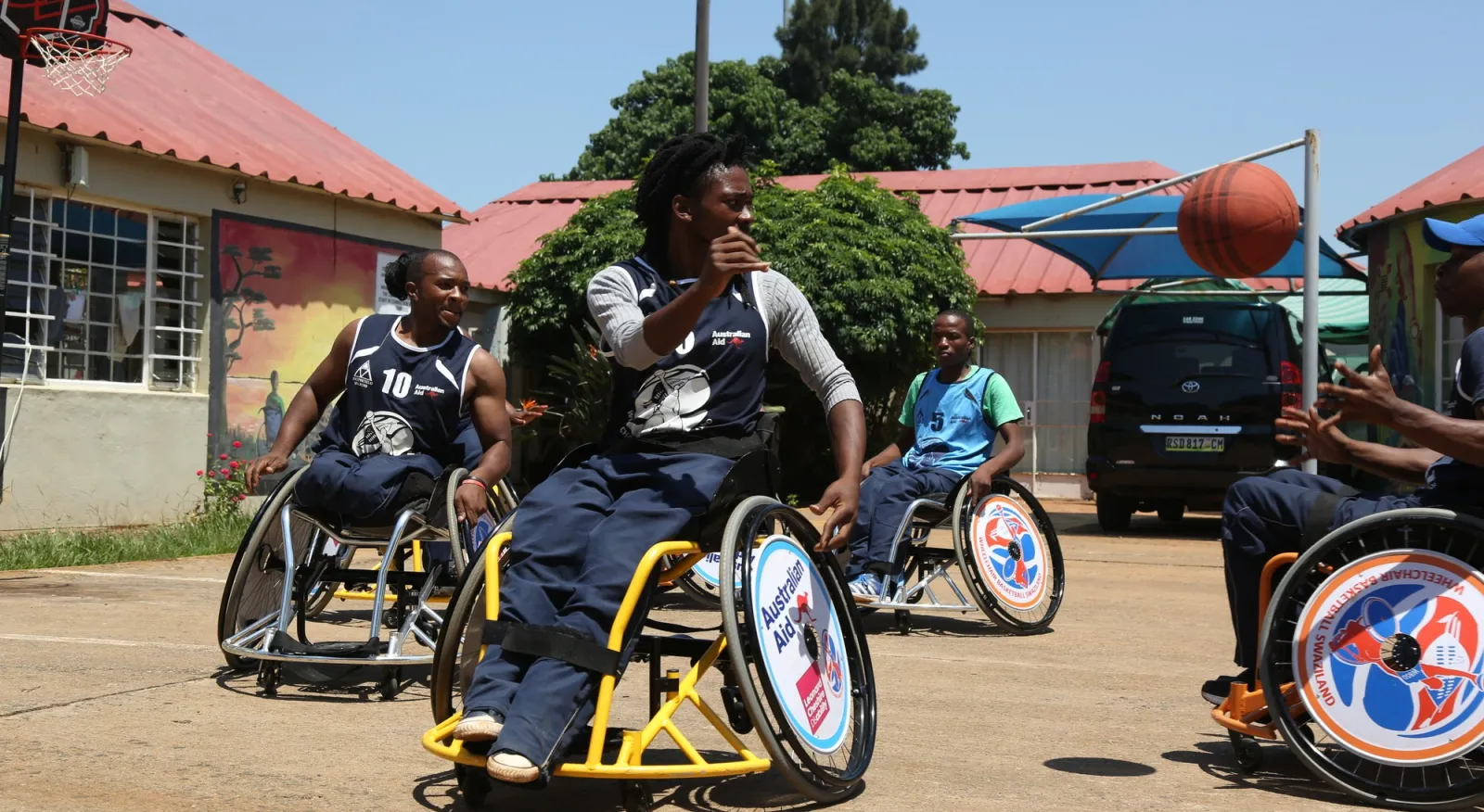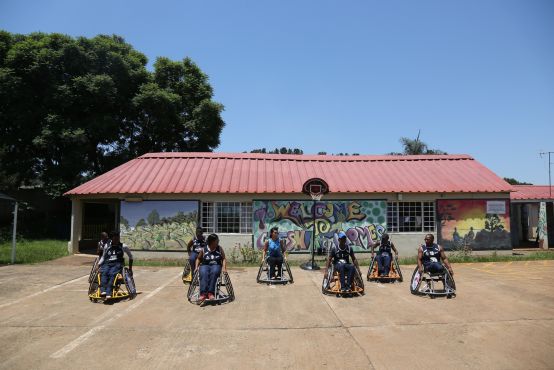Challenging attitudes to disability through sport
How an Australian volunteer physiotherapist is working to improve the opportunities for people with disabilities in Eswatini.

In Eswatini, a land-locked country bordering South Africa and Mozambique, people with disabilities have limited options when it comes to work and education.
Muzi Dlamini is the Director of Cheshire Homes Eswatini, an organisation providing rehabilitation and respite to people with disabilities in ESwatini, and a partner of the Australian Volunteers Program. Muzi says a major barrier faced by people with disabilities in ESwatini is a lack of understanding by the general public.
‘People here often think that if you have a disability you won’t be able to work, and you won’t be capable of being educated,’ he explains.
Cheshire Homes ESwatini is fighting to change that misconception with the help of Australian volunteer Jo Wing Lam Leung.
After volunteering with Cheshire Homes through the Australian Volunteers Program as a physiotherapist, Jo saw a need, and an opportunity, to involve the clients in sports. To make this vision a reality – Jo is now the project coordinator for the Wheelchair Basketball Program at the organisation.
Jo fundraised and engaged local stakeholders to get support to launch ESwatini’s first wheelchair basketball league in 2018. She also applied for funding from the Australian Government to have 30 specially made sports-specific wheelchairs sent from South Africa and China for the players.
‘Before we started this program, there wasn’t much for people with disabilities to do outside of their homes,' says Jo.
‘People with disabilities are marginalised, they don’t have jobs to do, they’re discriminated against in the education system, and so a lot of them are secluded from society and social participation.’
‘We saw the opportunity for sports to be an avenue for them to be more active and healthier; to be more social, and to promote a positive attitude towards people with disabilities amongst the public. And I think we are achieving that.’
'We use sport as a way to bring about positive changes for people with disabilities in the country,' adds Jo.
Critical to the success of the program, says Jo, has been involving the national basketball league. The ESwatini wheelchair basketball league is part of the National Basketball League, so games with able-bodied players and players with disabilities are played side by side.
Muzi says this new visibility of people with disabilities is starting to change attitudes:
‘Now we are having a lot of conversations with politicians and government officials and with the relevant institutions that are responsible for promoting sports. We are really, really getting there in terms of promoting the inclusion of people with disabilities.’
The most significant impact, say Muzi and Jo, is the difference they have seen in the players themselves.
‘You can see the change in the players attitudes and approach to life,’ says Muzi. ‘They now have the confidence to study and work – many have started jobs for the first time in their lives.’
Thobani Zikalala was born with Spina bifida. His family couldn't afford a wheelchair, so as a child he crawled around until he developed bad sores on his legs. When the sores became infected and the infection spread to his bones, the doctor decided to amputate his legs.
Thobani says playing basketball has given him a new life:
'I always wanted to do it. In my heart I wanted to be a star, actually. And now, the moment I’m on the basketball court, I feel like my family believe in me. I wish to see this team in the Olympics one day.'
Thobani competed in the eSwatini half marathon in 2019 - the first time anyone in a wheelchair had taken part in the event in the country.
Clients at Cheshire Homes practice a wheelchair Latin dance, choreographed by Jo.

Another player, Winile Mkhonta, says since playing basketball, she no longer feels ashamed of her disabilities:
'Wheelchair basketball has influenced my life because now I’m able to go anywhere and I can stand up for myself.'
‘One of the women players told me that for the first time in her life she feels confident, and a valued member of society, and that is just amazing,’ says Jo.
As well as wheelchair basketball, Jo has begun teaching the clients at Cheshire Homes wheelchair Latin dancing - see a clip of the players' routine below. And she now has her sights set on Wheelchair Tennis.